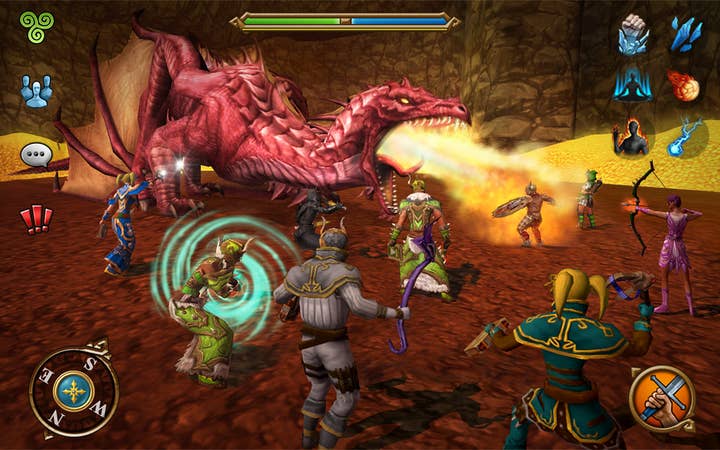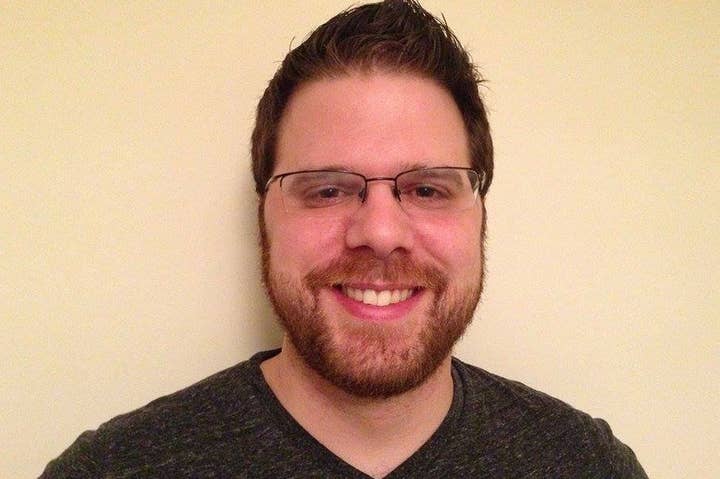Free-to-play stigma unlikely to fade away soon - Celtic Heroes dev
One Thumb Mobile's Paul Simon also sees more and more AAA gaming experiences coming to mobile
For as successful as the free-to-play business model has become in Western markets, the elephant in the room for many players and developers is the perception that freemium is nothing more than a thinly veiled monetization scheme, designed to maximize micro-transactions from so-called whales rather than putting a focus first on fun. This stigma associated with free-to-play was brilliantly demonstrated in a recent episode of South Park, which underscored why the business model still faces an uphill battle for mainstream acceptance.
Speaking to GamesIndustry.biz recently, Paul Simon, Executive Producer at One Thumb Mobile, a Scottish studio focused on bringing MMOs to the mobile market, stressed that while things are improving, perceptions can often take a while to change.
"It's unlikely the free-to-play stigma will fade away from Western gamers anytime soon. There's a lot of psychology at play regarding fairness and free-to-play that isn't an issue to gamers in Eastern markets where the model originated," he said. "Free-to-play is changing and adapting for Western audiences. We're likely to continue to see more and more players warm up to free-to-play -- especially since it has become the dominant market strategy, and many gamers haven't known anything else. This has been going on for the last five or so years, and it's unlikely to swing the other way suddenly. People like free stuff!"
"In the next few years... we're going to see more and more AAA-quality games on mobile and a change in core gamer opinions on mobile games"
Simon added that the negativity from players generally stems from games that have been designed unfortunately as "pay to win" experiences. Fairness with premium items is key. "To have a successful free-to-play strategy, players need to see your premium items as fair and obtainable. If you sell the best weapons and armour in your item shop, you might have great short term sales -- but you won't be able to keep players long term without very aggressive content update schedules," Simon added.
Where frequent content updates will help, however, is with the operation of an MMO. Most MMO players are PC gamers by nature, but One Thumb Mobile believes it has an opportunity to attract that audience and remain profitable while doing so.
The mobile MMO Celtic Heroes has been on iOS since 2011 and it arrived on Android earlier this year. Now One Thumb Mobile is overhauling it with a new engine called Destiny, built on Unity. It helps that much of the team isn't new to MMOs in general, having worked on titles like Runescape, Lord of the Rings Online and others.
"Experience from other MMO studios has helped influence our development. Our planning and documentation has gotten much better, and people have brought in tons of great ideas for future development such as our upcoming mounted combat and crafting systems -- both of which have been heavily influenced by sandbox MMOs. Since we're a mobile studio, we're expected to produce content much faster than a traditional MMO. We've dropped the idea of yearly expansion packs in favour of smaller more regular feature releases based on feedback from our players," Simon noted.

He added that One Thumb Mobile has been incredibly careful with its cost structure, as any MMO project can balloon out of control easily. "MMOs are complex and expensive projects that can cost tens of thousands to hundreds of thousands a month to run. One Thumb Mobile is in a fairly unique position that we're an independent MMO studio. We started off with a very small team and grew along with the success of Celtic Heroes -- reinvesting our earnings to grow from 5 to over 25 employees in three years. Staff should be your biggest overhead, so making sure to get the right people that are passionate about the project and not overspending on large fixed costs like massive server farms or an expansive studio right away can help keep your initial costs low," he said.
While Simon fully acknowledges that mobile MMOs are currently "very much a niche within the mobile gaming market," he's optimistic that more and more players are seeking out core gaming experiences.
"The expectations of mobile gamers changes much faster compared to other platforms. As the power and performance of mobile devices continues to grow, players will be demanding bigger games, better graphics and a deeper experience," he said.
"As this demand for less casual mobile titles increases, a small number of mobile MMOs have found success... we've got a loyal community of players who are looking for a AAA MMO experience on mobile. Our biggest hurdles are convincing traditional MMO players that we can provide a better experience than a desktop MMO and teaching a more casual mobile audience about how much fun they can have with an MMO like Celtic Heroes."
The ever accelerating pace of mobile hardware technology is definitely allowing game developers to create more sophisticated experiences, and that's going to help out studios who want to create core titles, Simon said.
"Once you find something that works, build on it! It's difficult to express how important polish and userflow are on mobile and free-to-play games"
"In the next few years... we're going to see more and more AAA-quality games on mobile and a change in core gamer opinions on mobile games. In the short term, discoverability is likely to remain the biggest challenge. While it can be a curse, it can also be a blessing -- since an indie studio with a really great game can be just as successful as a massive publisher that has for the most part still only dipped their toes into the marketplace because the pace of change is so fast," Simon continued.
Indeed, making a great game remains a crucial factor for indies, said Simon: "My top tips for new indie developers would be: make a great game and don't be afraid to try new things. We've tested many different styles of quests, items, premium items, sales and events. Some of them have been really successful, but you're going to fail a few times before you find what really works for your game. Once you find something that works, build on it! It's difficult to express how important polish and userflow are on mobile and free-to-play games.
"You have a very short window to sell your game, and you're probably not going to get a second chance. If you have new, innovative ideas, test them out with a small prototype and analyze the player reaction and uptake."
And if the experience is really solid, marketing will almost take care of itself. "For the first two years of development, we didn't do any marketing or user acquisition for Celtic Heroes. All of our users were organic and 'word of mouth' downloads. We focused on what made us stand out from the crowd: a true 3D MMO that rivals desktop gameplay and fits in your pocket. If you can bring something new to the platform and create sticky gameplay, it is much easier to get downloads than if you were to stick to an existing game formula," Simon said.

